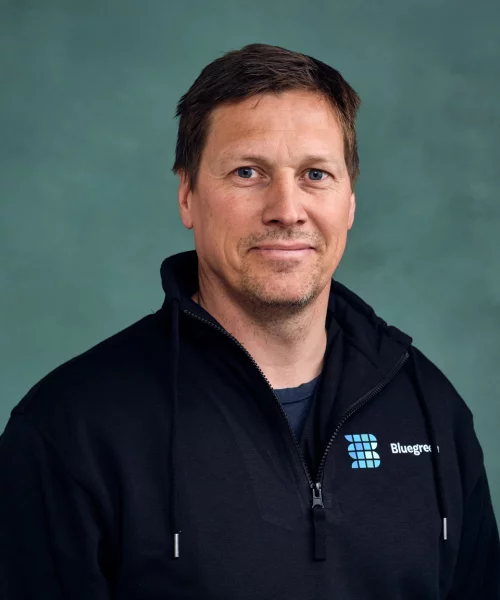This summer, SalMar completed the second production cycle in the Marine Donut. The project has delivered solid results, marking an important milestone for the technology.

The first full-scale pilot of the Marine Donut, including its associated development licenses, is owned by SalMar. Bluegreen is the technology provider and responsible for the design and construction of the unit, while SalMar has led the operation and execution of the testing program.
“We are very grateful for the trust SalMar has shown us by adopting this technology, and for the close collaboration throughout the entire project. It has been crucial to getting us to where we are today,” says Nils-Johan Tufte, CEO of Bluegreen.
The final stage of the test program was completed on Sunday, July 7, when nearly 1,000 tonnes of salmon were harvested from the unit. The operation was completed in 12 hours and is described as safe, efficient, and gentle – following risk-reducing measures implemented in close cooperation with SalMar.
“The fish were delivered with high quality, and it’s clear that Marine Donut provides a strong production environment with high welfare and low stress levels,” says Tufte.
The harvest marks the conclusion of the second full-scale test, and Marine Donut has now completed the full measurement program required under the development license. The process of applying for license conversion is now underway.
“This is a major milestone for the project and a strong confirmation that the technology works in practice. We now have what we need to move forward with the industrialization of Marine Donut,” says Geir Andresen, CCO at Bluegreen.
Ahead of the harvest, structural reinforcement measures were implemented to reduce stress on the construction. These were carried out in collaboration with SalMar and contributed to a safe and successful conclusion to the production cycle.
“We’ve learned a lot throughout the project and used that experience to improve the commercial version of the technology. Marine Donut 2.0 has received important structural upgrades,” says Andresen, adding that no changes have been needed in terms of biological performance or system functionality.
Throughout the entire production cycle, Marine Donut has delivered excellent biological results – with low mortality, strong appetite, and high growth rates. Logistics and day-to-day operations have also worked well.
“This project demonstrates what’s possible when you combine technological innovation with the operational expertise and execution capabilities of a company like SalMar. We’re proud of this collaboration and excited to be contributing to the development of future aquaculture solutions. Now we’re ready to move forward with the commercialization of Marine Donut,” concludes Tufte.

